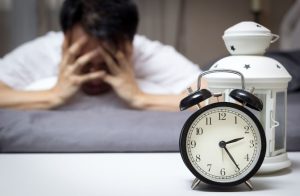Sufficient sleep is often an unsung hero of overall health. When people get enough sleep, their bodies are in a better position to fend off illness, and the rest ensures they have enough energy to tackle whatever challenges they confront.
 The American Academy of Sleep Medicine and the Sleep Research Society jointly recommend that adults get at least seven hours of sleep per night. A good night’s sleep is often discussed in terms of how it can affect physical health, but adequate rest also can have a profound impact on mental health. Sleep and mental health are intertwined, and the link between the two may be even more significant than was once believed.
The American Academy of Sleep Medicine and the Sleep Research Society jointly recommend that adults get at least seven hours of sleep per night. A good night’s sleep is often discussed in terms of how it can affect physical health, but adequate rest also can have a profound impact on mental health. Sleep and mental health are intertwined, and the link between the two may be even more significant than was once believed.• Sleep and depression: The Sleep Foundation notes that sleeping issues have historically been seen as a byproduct of depression. Indeed, the National Center for Biotechnology Information indicates that roughly three in four individuals with depression exhibit symptoms of insomnia. However, the Sleep Foundation reports that growing evidence now indicates poor sleep may induce depression.
• Sleep and anxiety disorders: Data from the National Institutes of Health indicates that one in five adults are affected by an anxiety disorder. The Mayo Clinic reports that feelings of nervousness and fear are hallmarks of anxiety disorders, and such feelings can make it hard to fall asleep. However, a 2013 study published in the journal Neuroscience found that poor sleep can activate anxiety. In addition, the Sleep Foundation reports that chronic insomnia may be a predisposing trait among individuals who eventually develop anxiety disorders.
• Sleep and bipolar disorder: A 2015 study published in the journal Sleep Medicine Clinics found a strong association between sleep disturbances and symptom worsening in bipolar disorder. The study highlighted evidence that suggests sleeping problems worsen or induce the manic and depressive episodes that are a hallmark of bipolar disorder. Researchers believe that successful treatment for insomnia, which would produce fewer sleep disturbances, can reduce the impact of bipolar disorder.
• Sleep and ADHD: The Sleep Foundation notes that sleeping problems are common in people with ADHD. Difficulty sleeping is commonly and correctly seen as a side effect of ADHD. However, the Sleep Foundation indicates sleep problems also may aggravate issues affecting attention and behavior that characterize ADHD.
The link between sleep and mental health is noteworthy. Sleep issues were once believed to be a byproduct of mental health issues. Though that remains true, there’s growing evidence that sleeping problems also can exacerbate or even trigger mental health problems.
More information is available at sleepfoundation.org.






